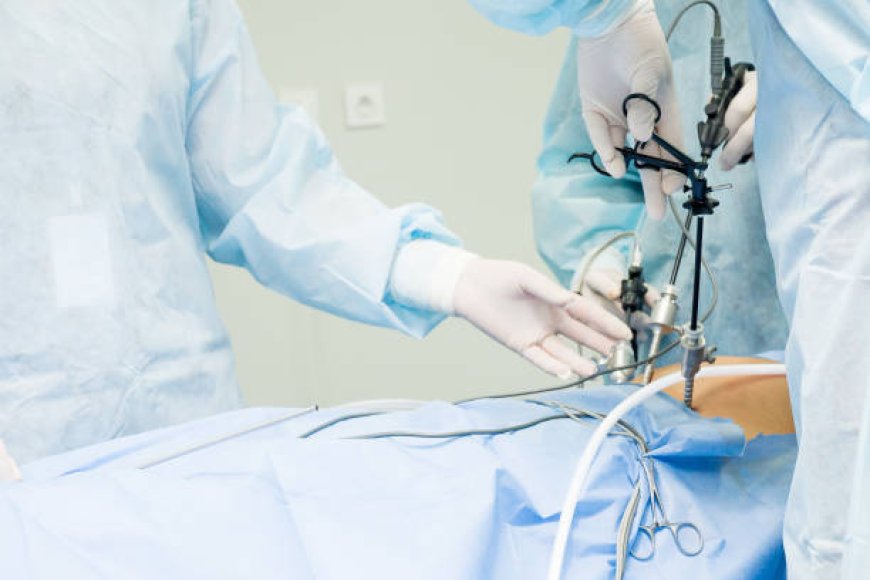Affordable Options for Laparoscopic Surgery in Abu Dhabi
Laparoscopic surgery cost in Abu Dhabi varies, averaging around AED 7,000 to AED 15,000 depending on the procedure and hospital.

Public Healthcare Facilities
Public healthcare facilities in Abu Dhabi, such as government hospitals and clinics, often provide laparoscopic surgery at subsidized rates or even for free for eligible residents. The Abu Dhabi Health Services Company (SEHA) manages several public hospitals and clinics across the emirate, offering a wide range of medical services, including laparoscopic procedures. Patients can benefit from highly skilled medical professionals and modern equipment while paying minimal fees or utilizing health insurance coverage.
Private Clinics with Affordable Packages
Several private clinics and medical centers in Abu Dhabi offer affordable packages for laparoscopic surgery. These clinics may provide competitive pricing for various procedures, including appendectomy, cholecystectomy, and hernia repair, among others. By opting for these clinics, patients can access high-quality surgical care without exorbitant costs. It's advisable to research and compare package prices from different clinics to find the most affordable option that meets one's needs.
Health Insurance Coverage
Health insurance is mandatory for residents in Abu Dhabi, and many insurance providers offer coverage for laparoscopic surgery. Individuals with health insurance can significantly reduce their out-of-pocket expenses when undergoing laparoscopic procedures at both public and private healthcare facilities. It's essential to review the coverage details of your health insurance policy, including any co-payments or deductibles, to understand the extent of financial assistance available for laparoscopic surgery.
Specialized Surgical Centers
Specialized surgical centers dedicated to minimally invasive surgery may offer cost-effective options for laparoscopic procedures. These centers focus exclusively on advanced surgical techniques, including laparoscopy, and often have streamlined processes and efficient resources, resulting in lower overall costs. Patients can benefit from the expertise of specialized surgeons and state-of-the-art equipment while potentially saving on surgical expenses compared to traditional hospitals.
Government Initiatives and Subsidies
The government of Abu Dhabi frequently introduces initiatives and subsidies aimed at enhancing healthcare accessibility and affordability for residents. These initiatives may include discounted rates for specific medical procedures, including laparoscopic surgery, especially for Emirati nationals or low-income expatriates. By staying informed about government programs and subsidies, individuals can take advantage of available resources to access affordable healthcare services, including laparoscopic procedures.
Medical Tourism Packages
Abu Dhabi is increasingly becoming a hub for medical tourism, attracting patients from around the world seeking high-quality healthcare at competitive prices. Some medical tourism agencies and facilitators offer comprehensive packages for international patients, including accommodation, transportation, and medical treatment, including laparoscopic surgery. These packages often provide cost-effective options for individuals seeking affordable yet top-notch healthcare services in Abu Dhabi.
Conclusion
Access to affordable laparoscopic surgery is essential for individuals in Abu Dhabi requiring surgical interventions without facing financial burdens. By exploring various options, including public healthcare facilities, private clinics with affordable packages, health insurance coverage, specialized surgical centers, government initiatives, and medical tourism packages, patients can find laparoscopic surgery cost in Abu Dhabi-effective solutions tailored to their needs. Whether through subsidized healthcare programs, insurance coverage, or competitive pricing from private providers, affordable laparoscopic surgery options contribute to ensuring accessible and high-quality healthcare services for residents of Abu Dhabi.
FAQs
What is laparoscopic surgery?
Laparoscopic surgery, also known as minimally invasive surgery, is a modern surgical technique that involves small incisions through which specialized instruments and a camera are inserted to perform various procedures inside the body. This approach offers benefits such as shorter recovery times, reduced post-operative pain, and smaller scars compared to traditional open surgery.
2. How does laparoscopic surgery differ from traditional open surgery?
In laparoscopic surgery, surgeons make small incisions (usually less than an inch) through which they insert a laparoscope (a thin tube with a camera) and other surgical instruments to perform the procedure. In traditional open surgery, a large incision is made to access the surgical site directly. Laparoscopic surgery generally results in less pain, shorter hospital stays, and quicker recovery times compared to open surgery.
3. What types of procedures can be performed using laparoscopic surgery?
Laparoscopic surgery can be used to perform a wide range of procedures across various medical specialties, including but not limited to:
- Appendectomy (removal of the appendix)
- Cholecystectomy (removal of the gallbladder)
- Hernia repair
- Bariatric surgery for weight loss
- Gynecological procedures such as hysterectomy and ovarian cyst removal
- Colorectal surgery
- Urological procedures such as nephrectomy and prostatectomy
4. Is laparoscopic surgery safe?
Laparoscopic surgery is generally considered safe and is widely used for many surgical procedures. However, as with any surgical procedure, there are potential risks and complications, such as bleeding, infection, and injury to surrounding organs. The safety of laparoscopic surgery depends on factors such as the patient's overall health, the skill of the surgeon, and the quality of the medical facility where the procedure is performed.
5. How long does it take to recover from laparoscopic surgery?
Recovery time from laparoscopic surgery varies depending on the type of procedure performed and individual factors such as the patient's overall health and the complexity of the surgery. In general, recovery from laparoscopic surgery is faster compared to traditional open surgery. Patients may experience less post-operative pain, have smaller scars, and return to normal activities sooner, typically within a few days to a few weeks after the procedure.
6. Are there any specific preparations required before undergoing laparoscopic surgery?
Before undergoing laparoscopic surgery, patients may need to follow specific pre-operative instructions provided by their surgeon or healthcare team. These instructions may include fasting before the surgery, discontinuing certain medications, and undergoing pre-operative tests or evaluations. It's essential for patients to communicate openly with their healthcare providers and follow their recommendations to ensure a successful surgical outcome.
What's Your Reaction?
 Like
0
Like
0
 Dislike
0
Dislike
0
 Love
0
Love
0
 Funny
0
Funny
0
 Angry
0
Angry
0
 Sad
0
Sad
0
 Wow
0
Wow
0





















































